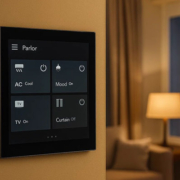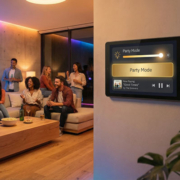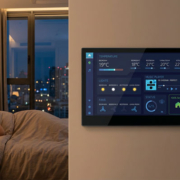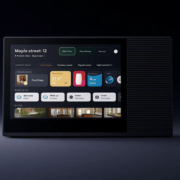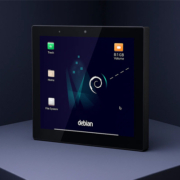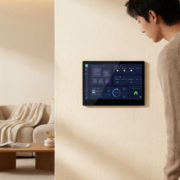What is the Best Linux Distribution for Home Automation?
In an era where global connections are growing, there is a marked trend among homeowners to embrace smart home control panels along with devices, which in turn automate their daily routines and make life simpler. The OS that underpins any good smart home system is of course equally vital. As for platforms, Linux-based ones are usually favored by both enthusiasts and professionals for stability, flexibility, and the open-source approach. But among the myriad choices available, which stands out as the best Linux distribution for home automation?
This article will take you through the top Linux distros for home automation, assessing their pros and cons along with suggesting the best use cases for them—more so if you are looking to build or tweak your own smart home control panel system.
Why Go for Linux in Home Automation
But before we jump into the best Linux distributions, let’s briefly touch on why Linux is so well-suited for home automation:
- Freedom in open source: The system can be tailored to your needs without any licensing restrictions.
- Stability and Reliability: Uptimes on Linux systems are known to be long with minimum maintenance.
- Security: It has quite a solid security base, supplemented by active open source-based patching.
This is suitable for Raspberry Pi through to industrial-grade embedded systems.
For companies like Portworld, which are focused on embedded smart home panels and flexible automation solutions, the Linux-based systems present a very good way to develop and deploy the product. Popular distributions in this space include Ubuntu and Debian; specialized, embedded versions are available too, such as Yocto.
Top Linux Distributions for Home Automation
1. Ubuntu Server (or Ubuntu Core)
Best for: Beginners, general purpose smart home hubs
Ubuntu is one of the friendlier Linux distributions, and it is among the well-documented ones. Ubuntu Server (as well as its IoT-focused version, namely Ubuntu Core) furnishes a reliable and secure environment for platforms like Home Assistant, OpenHAB, and Node-RED.
Pros:
Highly supported community
Compatible with Portworld smart home control panels-supports ARM & x86 architectures.
Slightly bulky compared to minimal distros,It feels restrictive for some users to work with the Snap system.
2. Debian
Best for: Advanced users looking for long-term stability
Debian, the foundation of Ubuntu, is a highly stable distribution ideal for long-term automation projects. It doesn’t change often, which makes it perfect for systems that need to run consistently with minimal updates.
Pros:
- Rock-solid stability
- Huge software repository
- Low overhead; runs well on embedded systems like Portworld’s 4-inch and 5-inch smart home control panels
Cons:
- Slower to adopt newer packages
- Installation may be intimidating for beginners
3. Raspberry Pi OS (formerly Raspbian)
Best for: Raspberry Pi-based DIY smart home projects
For those using Raspberry Pi as a smart home hub, Raspberry Pi OS is the natural choice. It’s optimized for the hardware and supports a variety of tools like Home Assistant and MQTT brokers.
Pros:
- Perfect for low-power DIY projects
- Huge community and support for beginners
- Lightweight and efficient
Cons:
- Limited hardware scalability
- Not ideal for enterprise or multi-zone smart home environments
Yocto Project (Custom Linux)
Best for: Embedded systems, commercial smart home control panels
If you’re working with embedded devices like Portworld’s Android/Linux dual-system panels, Yocto is a highly customizable framework for building tailored Linux distributions. It allows developers to create lean, secure, purpose-built images.
Pros:
- Full control over what gets included
- Excellent for constrained hardware environments
- Ideal for OEMs and device manufacturers
Cons:
- Steep learning curve
- Requires Linux development expertise
Portworld’s Recommendation: Debian-Based or Yocto for Maximum Flexibility
Portworld, a leading provider of smart home control panel solutions, recommends Debian-based distributions or custom Yocto builds for both consumer and commercial smart automation projects.
- For DIY developers or system integrators, Debian or Ubuntu offers an excellent balance of ease and power.
- For OEMs and advanced users, Yocto provides unmatched customization for embedded smart home panels, especially when working with Portworld’s hardware.
Portworld supports Linux across multiple platforms, including ARM and x86 architectures, and offers BSP (Board Support Package) customization for Ubuntu, Debian, and Yocto-based systems. Their 4-inch and 5-inch touch screen smart control panels are highly compatible with Linux and perfect for centralized automation systems.
So, what is the best Linux distribution for home automation? The answer depends on your specific needs:
- Ubuntu or Debian for general use and flexibility
- Raspberry Pi OS for lightweight DIY projects
- Yocto for embedded, commercial-grade smart home control panels
Whether you’re an enthusiast building a Raspberry Pi-powered smart hub or a business deploying hundreds of Linux-based smart home control panels, there’s a Linux distribution that fits your purpose.
And if you need a powerful, customizable, and scalable hardware solution, Portworld provides the perfect foundation with robust support for Linux, Android, and hybrid systems. Explore their smart control panels and embedded solutions tailored to modern automation needs.

